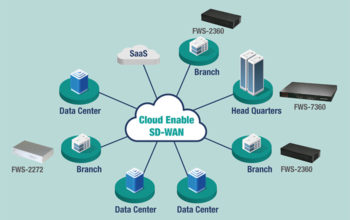Artificial intelligence and machine learning use data to solve new problems. Bill Gates, founder of Microsoft, said that “AI can be our friend” and be useful to society. AI already affects all human lives in the way we interact, sell, drive, see, speak and live with intelligent systems.
Artificial intelligence at war
The future of war will depend on smart technology like never before. Drones are just the beginning.
Cybersecurity opens up new opportunities for artificial intelligence. Clinc AI is used to detect malware. AI can detect cybersecurity risks and biases on a large scale.
AI to challenge the pros
Skilled professionals also have to deal with the heat of artificial intelligence just as much as mid-level professionals. For example, since AI reduces costs and increases efficiency, it will affect the compensation structure of outside law firms that charge hourly rates.
Decentralization and democratization
Artificial intelligence is not just limited to powerful supercomputers and large devices; It is also becoming an integral part of smartphones, devices, and laptops. Edge computing is becoming the next big area of AI.
Another use case for peripheral AI is to train your personal AI assistant locally on your device to recognize your accent or unique faces.

Data processing strategy for successful AI implementation:
Data plays a vital role in the successful implementation of an AI strategy. According to a Forbes Insight survey, only 12% of CEOs say their organization has developed and is implementing an overall corporate strategy, and nearly 80% of CEOs say 40% or less of their data is available for your company.
Without a good data processing strategy, an organization cannot gain a competitive advantage from AI adoption. An enterprise data strategy that supports and drives the AI initiative requires the active participation of the entire organization. Cross-functional teams are responsible for developing data for the company. As a senior leader, one can seek to facilitate and coordinate between IT and business stakeholders.
The data can be in different places and in different forms. If the resulting data is poor quality, incomplete, overlapping, or irrelevant to current business goals, this will affect the successful implementation of AI. The data must be consolidated and have clear labels and parameters.
After data management, collecting new data is an important task. For example, if retailers want to forecast demand, they may want to get the latest data from a weather data provider to learn about weather conditions affecting foot traffic. If someone wants to be successful, he must have a data set that his competitors cannot reproduce. This process involves creating an efficient data cycle by incorporating data collection into the fabric of your product.
It’s not too late to start, but time is of the essence, as the pressure to embrace AI comes not just from the competition, but also from boards.



